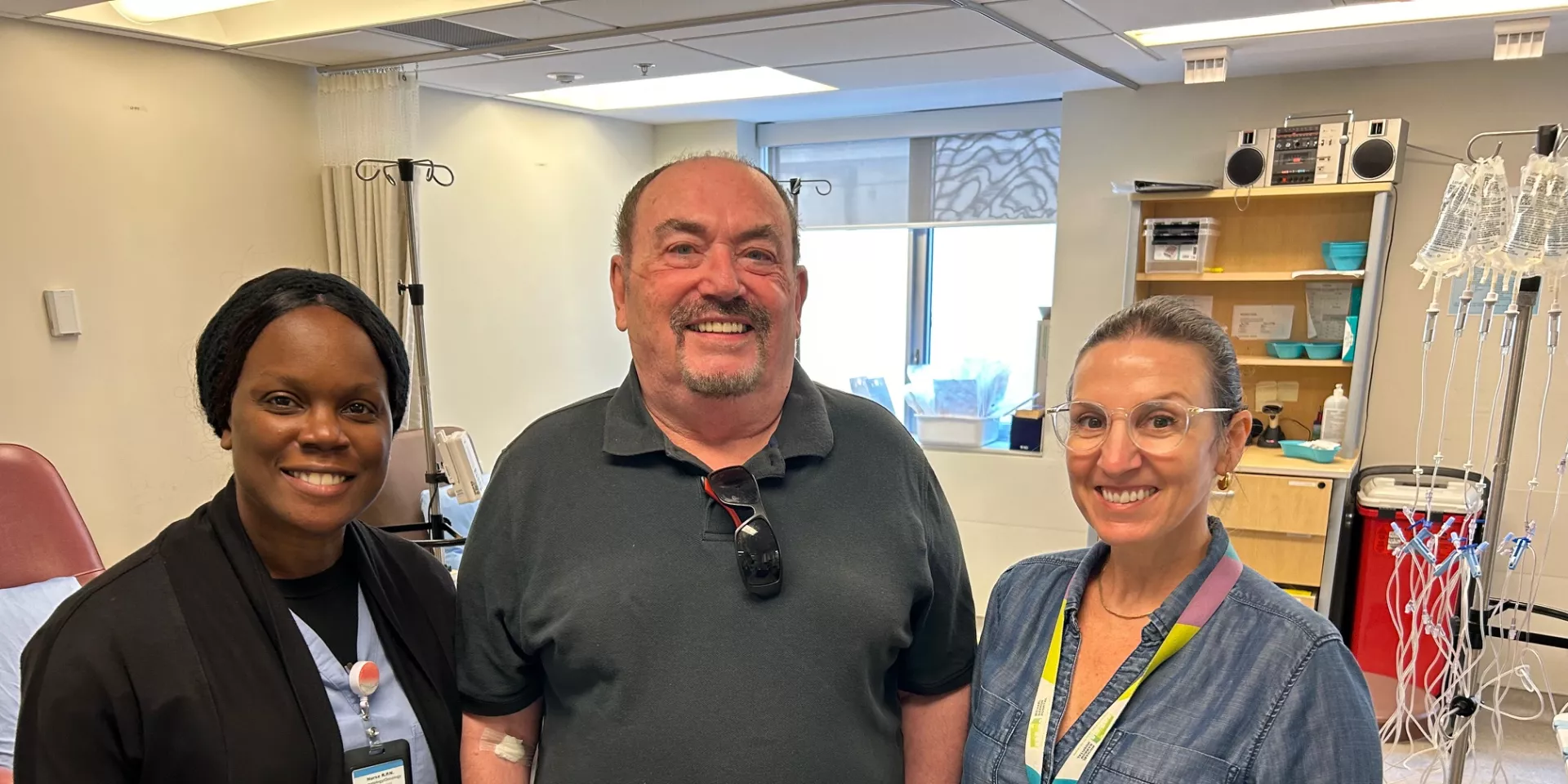“I’ve always found at Michael Garron Hospital that staff are attentive and really listen to you,” says Dan, a 72-year-old East Toronto resident.
That proved to be the case when he spent four nights in our hospital for a stroke, and also now as he receives outpatient care for the rare blood disorder that contributed to it.
In March, Dan began losing strength and coordination in his left hand. He had trouble typing and playing the organ, one of his favourite hobbies. “It was the strangest feeling,” says Dan, a retired elementary school teacher.
As the symptoms grew more worrisome, he turned to our Stavro Emergency Department (ED).
On the ball
A series of tests in the ED, including a CT scan, revealed Dan’s ischemic stroke. With this condition, blood flow to the brain is inhibited, typically by a clot. Without sufficient flow, brain tissue can be damaged and cause temporary or permanent disability.
Dan was impressed by the comprehensive and efficient care in our ED and in the inpatient unit where he stayed. “They were on top of things at all times. They always seemed to know what to do next,” he says.
While hospitalized, Dan’s attending physician Dr. Alexander Grindal urged him to quit smoking. People who smoke are twice as likely to have a stroke or heart attack, and twice as likely to die from them.
A smoker for 50 years, Dan says his stroke was enough to get him to quit cold turkey. “And now food tastes better. I sleep better. Just everything is better.”
Dr. Grindal visited Dan daily with updates, “so I was never left in the dark, which was very important to me. He was excellent.”
Dan’s hand improved significantly in hospital. “I was very lucky my stroke didn’t have a greater impact,” he adds.
Getting to the bottom of things
Dan is equally delighted with the follow-up outpatient care he’s receiving at Michael Garron Hospital to tackle a root cause of his stroke: a rare blood disorder, called polycythemia rubra vera (PRV), that causes overproduction of red blood cells.
Having too many of them thickens blood and increases the risk of clots. Polycythemia rubra vera is a chronic condition with no cure, but treatment is quite effective at normalizing red blood cell levels and addressing the risk of complications. Most people manage the condition well for many years.
While the most significant threat from PRV is blood clotting, there’s a very small chance it will progress to an aggressive type of blood cancer.
That’s why it’s vital for people living with PRV to receive ongoing expert care, which is exactly what Dan’s been getting from haematologist Dr. Patricia Disperati and her colleagues in our Oncology and Haematology Clinic.
Care with heart
Dan regularly attends the clinic for assessment, including on-the-spot testing of his red blood cell levels. If they’re too high, the team will withdraw 400 millilitres of blood.
This is an important aspect of PRV treatment that quickly reduces red blood cell counts. Equally important, Dan takes medication to keep his levels in check.
“Everyone in the clinic is fantastic,” he says. The nurse who draws his blood, Natasha Beason, is “just amazing” and always friendly. Dr. Disperati, he adds, “explains everything, and I never feel rushed.”
Dan also appreciates Dr. Disperati’s hands-on approach. For instance, after he had an alarming blood pressure reading in her office, Dr. Disperati made a point of accompanying him to another area of the clinic. There, Natasha took a reading with a different machine to verify the results, which ultimately proved false.
“How many doctors would take the time to go and stay with you?” he asks.
Second to none
In the weeks ahead, Dan hopes his hand strength and coordination will continue to improve so that he can return to his organ playing and other hobbies.
With the Michael Garron Hospital team behind him, Dan says he’s confident he’ll be able to manage his condition. “The follow-up care that you get here is second to none. It really is.”
Donors help fund CT scanners and other crucial equipment that benefits patients like Dan. Donate today to support the heart of the east.
